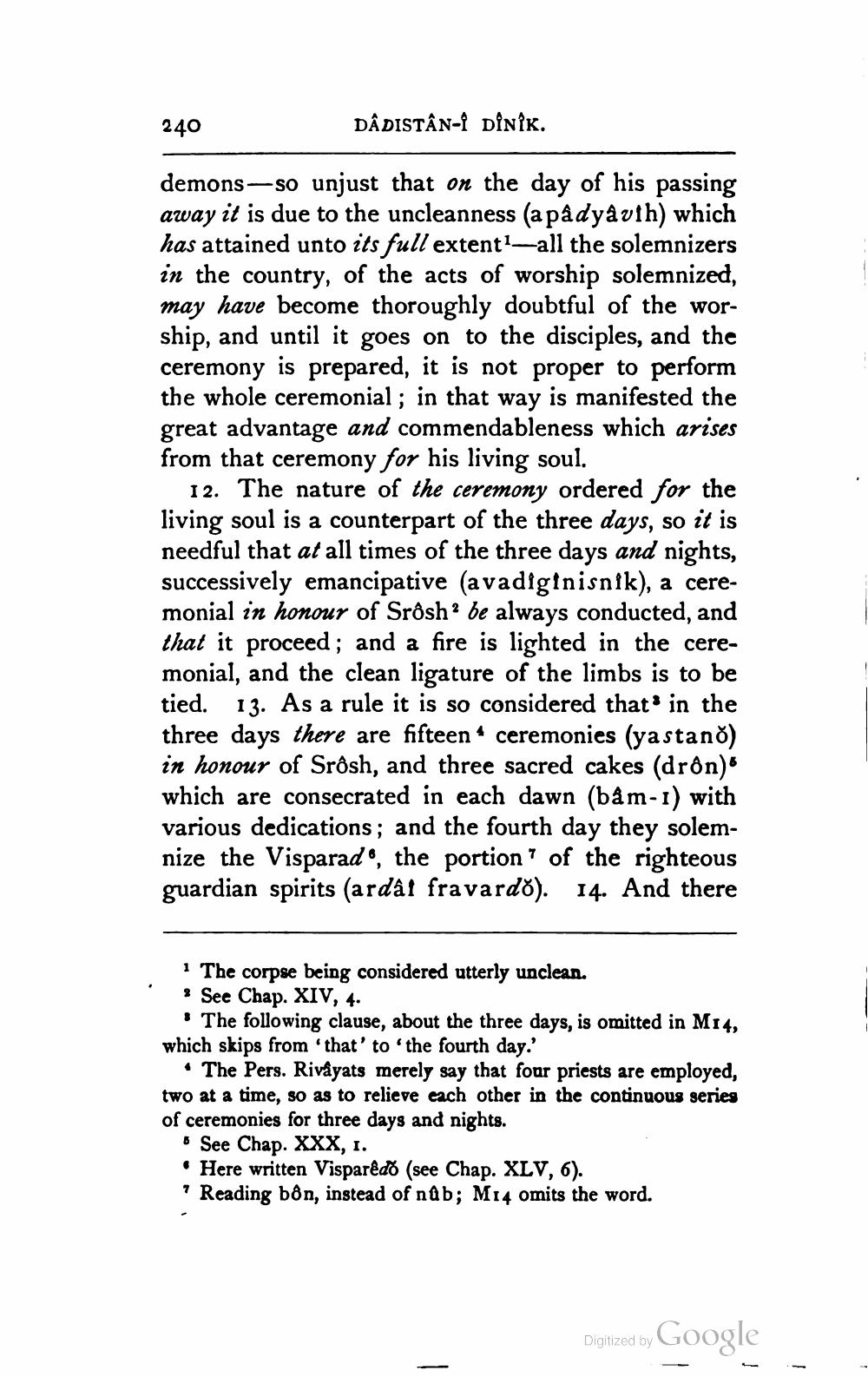________________
240
DÂDISTÂN- Dinik.
demons-so unjust that on the day of his passing away it is due to the uncleanness (a på dyàvih) which has attained unto its full extent all the solemnizers in the country, of the acts of worship solemnized, may have become thoroughly doubtful of the worship, and until it goes on to the disciples, and the ceremony is prepared, it is not proper to perform the whole ceremonial ; in that way is manifested the great advantage and commendableness which arises from that ceremony for his living soul.
12. The nature of the ceremony ordered for the living soul is a counterpart of the three days, so it is needful that at all times of the three days and nights, successively emancipative (avadiginisnik), a ceremonial in honour of Srôsh? be always conducted, and that it proceed; and a fire is lighted in the ceremonial, and the clean ligature of the limbs is to be tied. 13. As a rule it is so considered that: in the three days there are fifteen* ceremonies (yastano) in honour of Srôsh, and three sacred cakes (drôn) which are consecrated in each dawn (bam-1) with various dedications; and the fourth day they solemnize the Visparado, the portion of the righteous guardian spirits (ardàt fravardo). 14. And there
*
· The corpse being considered utterly unclean.
See Chap. XIV, 4.
The following clause, about the three days, is omitted in M14 which skips from 'that' to 'the fourth day.'
• The Pers. Rivayats merely say that four priests are employed, two at a time, so as to relieve each other in the continuous series of ceremonies for three days and nights.
. See Chap. XXX, 1. • Here written Visparêdo (see Chap. XLV, 6). * Reading bôn, instead of nůb; M14 omits the word.
Digitized by
Digitized by Google




